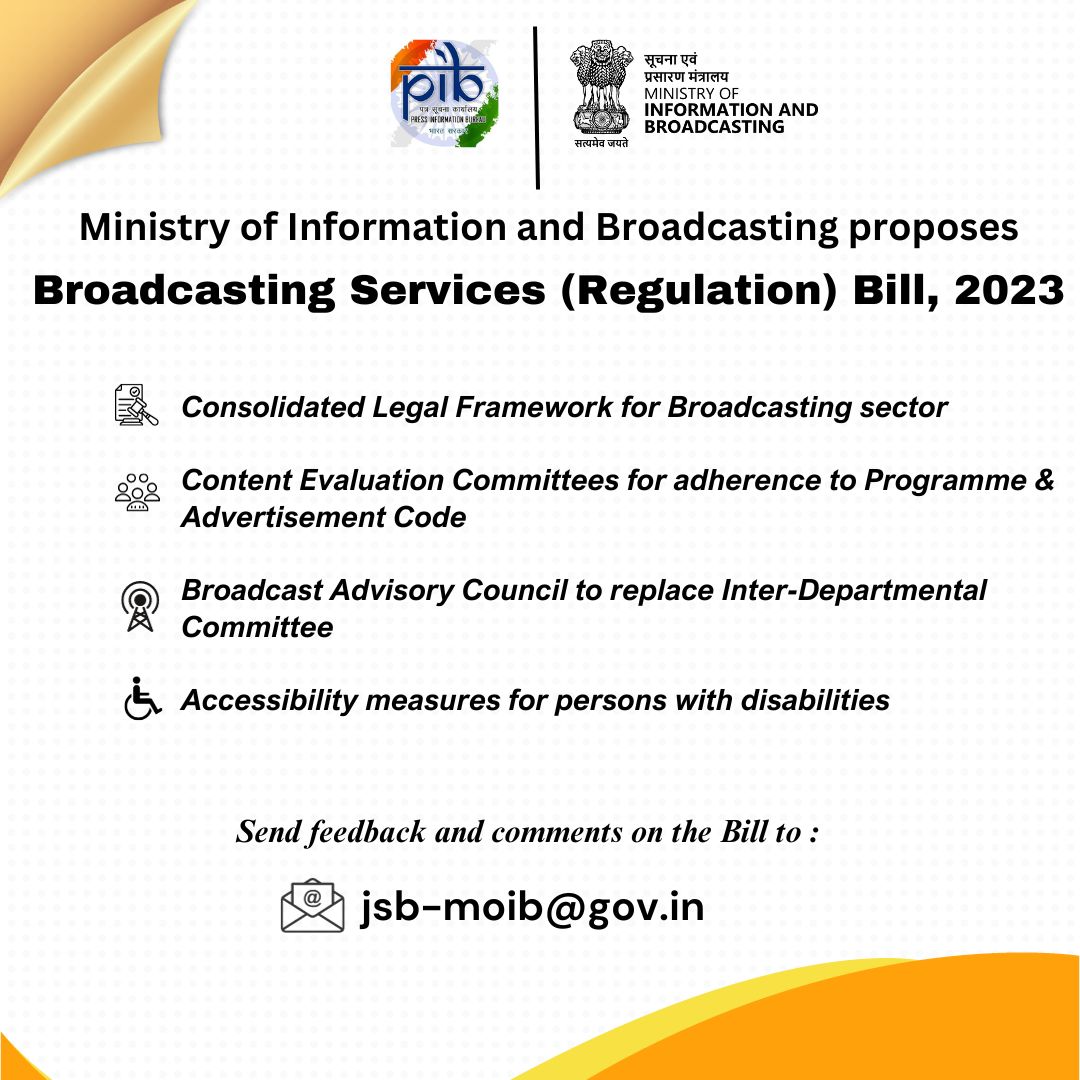From UPSC perspective, the following things are important :
Prelims level: Broadcast Advisory Council
Mains level: press freedom and diversity

Central idea
India’s Broadcasting Services Bill aims at regulating broadcasting comprehensively, introducing positive steps like audience data transparency and competition in terrestrial broadcasting. However, concerns arise over privacy, jurisdictional conflicts with OTT regulation, and lack of measures on ownership and an independent regulator.
Key Highlights:
- The Broadcasting Services (Regulation) Bill aims to regulate broadcasting comprehensively, marking the third attempt since 1997.
- Positive propositions include obligations for record-keeping, audience measurement transparency, and allowing private actors in terrestrial broadcasting.
Key Concerns:
- Lack of privacy safeguards for subscriber and audience data in data collection practices.
- Inclusion of Over-the-Top (OTT) content suppliers in the definition of broadcasting creates jurisdictional conflicts and poses threats to smaller news outlets.
Positive Provisions Requiring Refinement:
- Obligation for maintaining records of subscriber data.
- Stipulation of a methodology for audience measurement.
- Provision to permit private actors in terrestrial broadcasting.
Apprehensions:
- Expanded definition of broadcasting may limit conditions for journalists and news outlets not part of large television networks.
- The mandate for a ‘Content Evaluation Committee’ to self-certify news programming raises feasibility and desirability concerns.
Crucial Silences in the Bill:
- Lack of measures to assess cross-media and vertical ownership impacts diversity in the news marketplace.
- Absence of provisions for creating an independent broadcast regulator.
Government Empowerment and Intrusive Mechanisms:
- The Bill grants the government leeway to inspect broadcasters without prior intimation, impound equipment, and curtail broadcasting in “public interest.”
- Violations of the Programme Code and Advertisement Code could result in deleting or modifying content.
Concerns Regarding Broadcast Advisory Council:
- Doubts about the Council’s capacity to address grievances raised by over 800 million TV viewers.
- Lack of autonomy for the Council, as the Central government has the ultimate decision-making authority.
Key Terms and Phrases:
- Over-the-Top (OTT) content suppliers
- National Broadcasting Policy
- Content Evaluation Committee
- Vertical integration
- Broadcast Advisory Council.
Key Statements:
- Privacy concerns arise due to the Bill’s lack of guardrails for subscriber and audience data collection practices.
- The absence of measures to assess cross-media and vertical ownership impacts the diversity of news suppliers.
- The Bill’s silence on creating an independent broadcast regulator is a significant omission.
Key Examples and References:
- The Bill is part of a series of attempts to regulate broadcasting, following initiatives in 1997 and 2007.
- TRAI’s ‘National Broadcasting Policy’ proposes including OTT content suppliers in the definition of broadcasting services.
Key Facts and Data:
- Lack of specifics on cross-media and vertical ownership in the Bill impedes diversity in the news marketplace.
- No provisions for an independent broadcast regulator, with the proposal for a ‘Broadcast Advisory Council.’
Critical Analysis:
- The potential positive provisions of the Bill require refinement, particularly concerning privacy protection and oversight bodies for news outlets.
- Intrusive mechanisms grant significant power to the government, posing concerns about press freedom and external pressure on news suppliers.
Way Forward:
- The Bill must address jurisdictional conflicts, incorporate privacy safeguards, and reconsider intrusive provisions for effective and balanced regulation.
- Protection of press freedom and diversity should be prioritized through fine-tuning potentially positive provisions and addressing omissions.
Get an IAS/IPS ranker as your 1: 1 personal mentor for UPSC 2024

